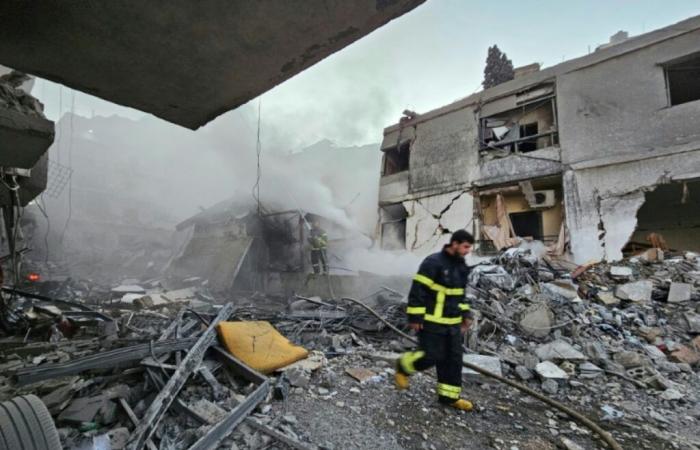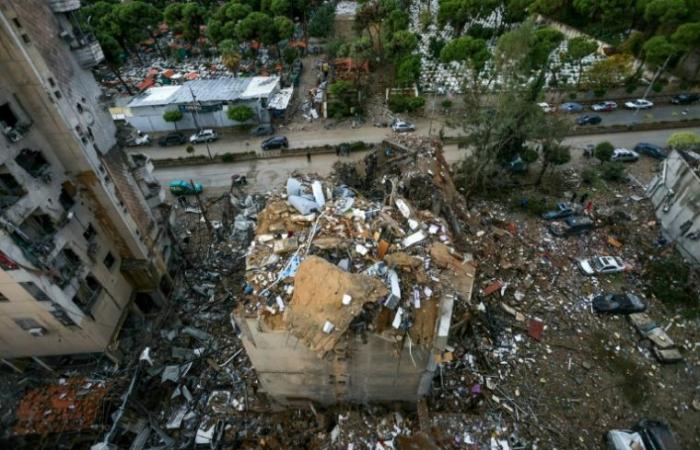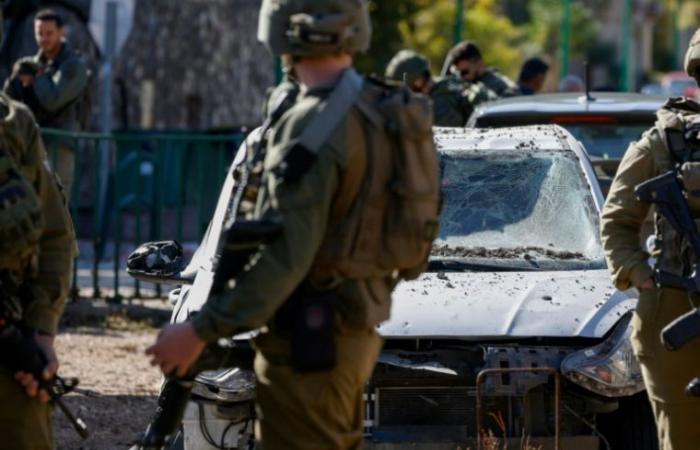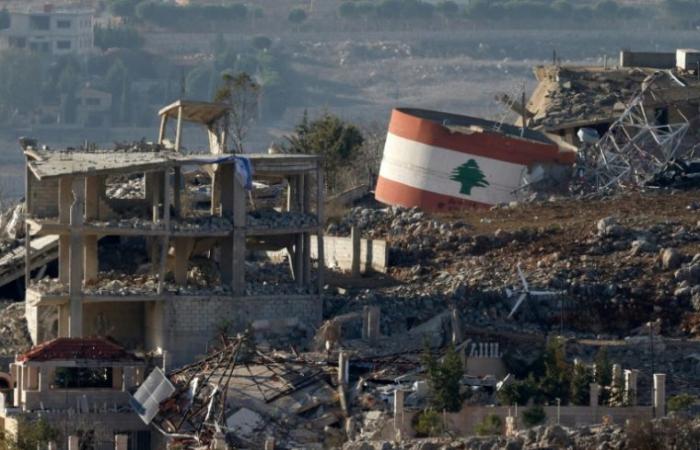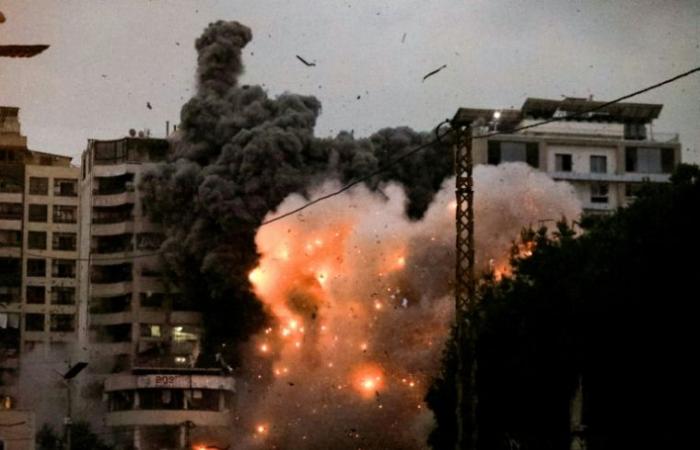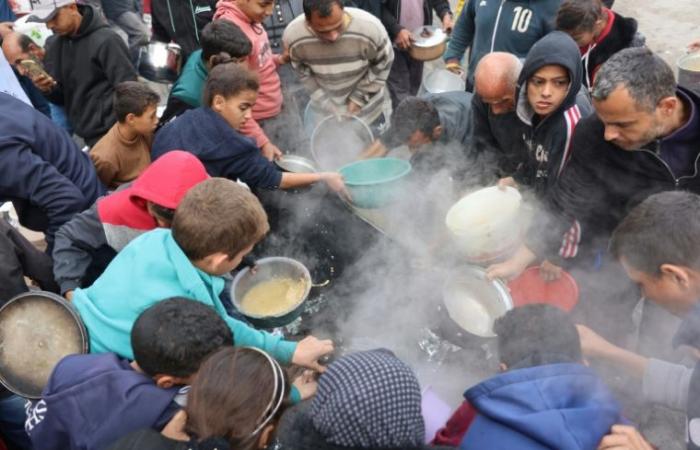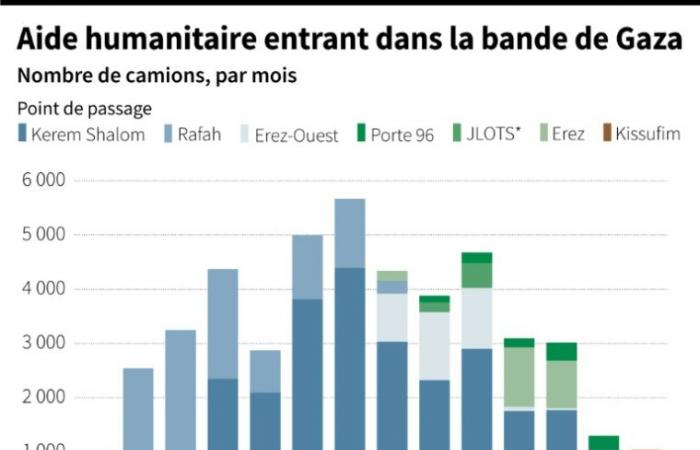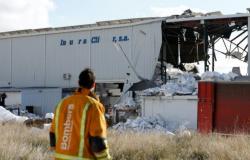A firefighter at the site of an Israeli bombing in the southern suburbs of Beirut on November 26, 2024 (AFP / -)
Israeli Prime Minister Benjamin Netanyahu is due to speak Tuesday evening after a meeting of the Israeli security cabinet to consider a proposed ceasefire in the war against Hezbollah in Lebanon, as the he Israeli army shells the heart of Beirut and its southern suburbs.
Announcing this intervention, the Prime Minister's services did not specify what it would cover.
During the security cabinet meeting, “there must be (…) a discussion, a decision. There could also be a vote,” Deputy Foreign Minister Sharren Haskel had earlier said.
The United States spoke of a “close” agreement, while calling for caution, on a truce between Israel and the Lebanese movement supported by Iran, which entered into open war at the end of September on the sidelines of the Israeli offensive in the strip. from Gaza.
But at a time when diplomatic pressure is intensifying, Israel on Tuesday increased its aerial bombardments on the center of Beyouth and its southern suburbs, a Hezbollah stronghold, after calls to evacuate.
At the end of the afternoon, it carried out new strikes in neighborhoods in the heart of the capital, fled in panic by residents.
It had earlier bombed a building housing displaced people there, killing at least seven people according to the Lebanese authorities.
A Hezbollah MP, Amin Cherri, accused Israel of wanting to “take revenge on the Lebanese” before a possible ceasefire.
The Israeli army reported in the afternoon more than 20 projectiles fired from Lebanon against Israel. She also reported strikes in southern Lebanon and a ground operation in “the Litani River region”, to the north of which Israel says it wants to repel Hezbollah.
Destructions in the southern suburbs of Beirut after an Israeli strike, November 26, 2024 (AFP / IBRAHIM AMRO)
Israel has “no excuse” for refusing a ceasefire, said Tuesday the head of diplomacy of the European Union, Josep Borrell, the G7 foreign ministers expressing their support for “a ceasefire -immediate fire”, deemed “within reach” by Berlin.
The UN, for its part, reiterated its call for a “permanent ceasefire” in Lebanon, Israel and Gaza.
Israeli Defense Minister Israel Katz, however, warned that his country would act “forcefully” in the event of a violation of an agreement.
– “Not trustworthy” –
The war that has raged since October 2023 in the Gaza Strip between Israel and Hamas has spread to Lebanon after a year of exchanges of fire on both sides of the Israeli-Lebanese border, which displaced dozens thousands of civilians in both countries.

Israeli forces deployed in Kiryat Shmona, a town in northern Israel, after Hezbollah rocket fire, November 26, 2024 (AFP / Jalaa MAREY)
According to the American news site Axios, the agreement is based on an American project providing for a 60-day truce during which Hezbollah and the Israeli army would withdraw from southern Lebanon to allow the Lebanese army to deploy there.
It includes the establishment of an international committee to monitor its application, added Axios, specifying that the United States would have given assurances of its support for Israeli military action in the event of hostile acts by Hezbollah.
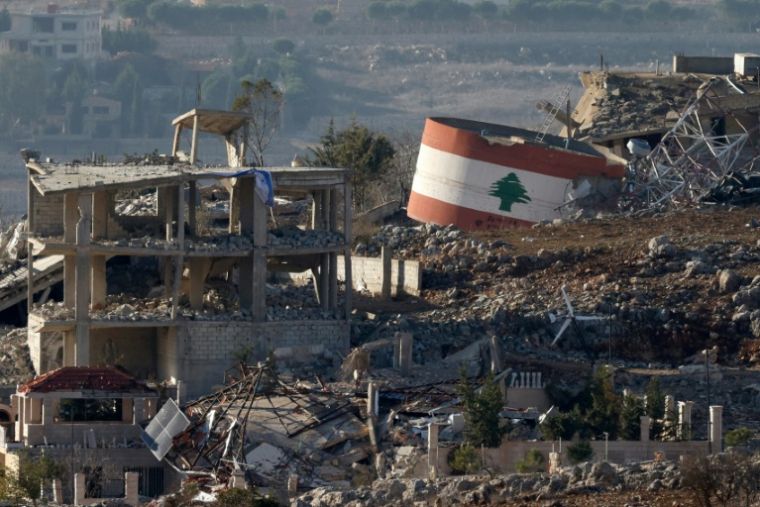
Photo taken from northern Israel shows an Israeli flag and a Lebanese flag flying over the ruins in the village of Meiss El-Jabal, southern Lebanon, on November 25, 2024 (AFP/Jalaa MAREY)
The mediation is based on UN Security Council Resolution 1701, which ended the previous war between Israel and Hezbollah in 2006, and stipulates that only the Lebanese army and peacekeepers can be deployed to the border. southern Lebanon.
Israeli National Security Minister Itamar Ben Gvir, Mr Netanyahu's far-right ally, said a ceasefire would be “a big mistake”.
For Nahum Donita, a 60-year-old resident of Tel Aviv, “it is clear that Hezbollah cannot be trusted. But the Israeli government is not trustworthy either.”
Israel says it wants to neutralize Hezbollah in southern Lebanon to protect its population. The Shiite movement, hard hit since September, assured that it would fight Israel as long as the offensive in Gaza against its ally Hamas continued, while saying it was open to a ceasefire.
According to the Ministry of Health, nearly 3,800 people have been killed in Lebanon since October 2023, most since last September.
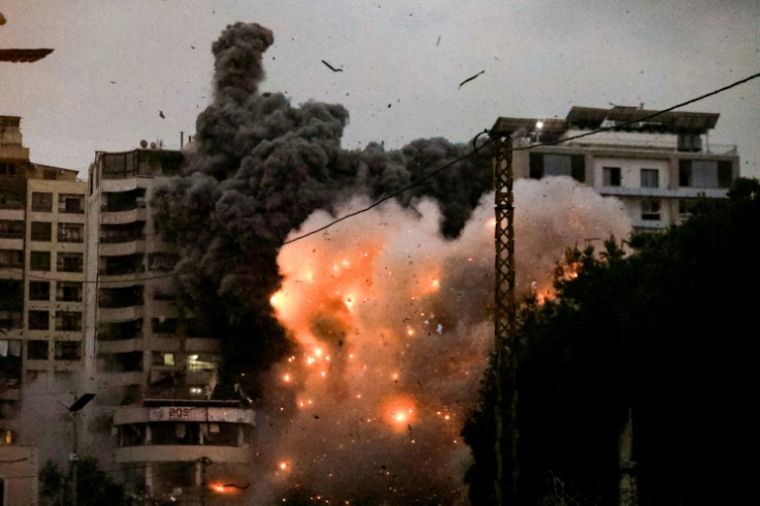
Israeli bombing on the southern suburbs of Beirut, November 25, 2024 (AFP / -)
On the Israeli side, 82 soldiers and 47 civilians were killed in 13 months.
– 22 dead in Gaza –
The Israeli army is also continuing its strikes on the besieged Gaza Strip, where at least 22 people were killed on Tuesday, according to Civil Defense, including 11 in a school housing displaced people in the north.

Palestinians wait to receive a food ration in front of a distribution center near Gaza City, November 25, 2024 (AFP / Omar AL-QATTAA)
At the start of winter, thousands of displaced people are trying, with paltry means, to protect themselves from the rain and the cold.
“We try as much as we can to prevent rainwater from seeping into the tents so that the children don't get soaked,” says Ayman Siam, a father who took refuge in Gaza City, in the north. .
The winter is going to be “horrible”, warned Louise Wateridge, a spokesperson for the United Nations agency for Palestinian refugees (UNRWA), while Gazans “have not had the most basic things for 13 months : no food, no water, no shelter.
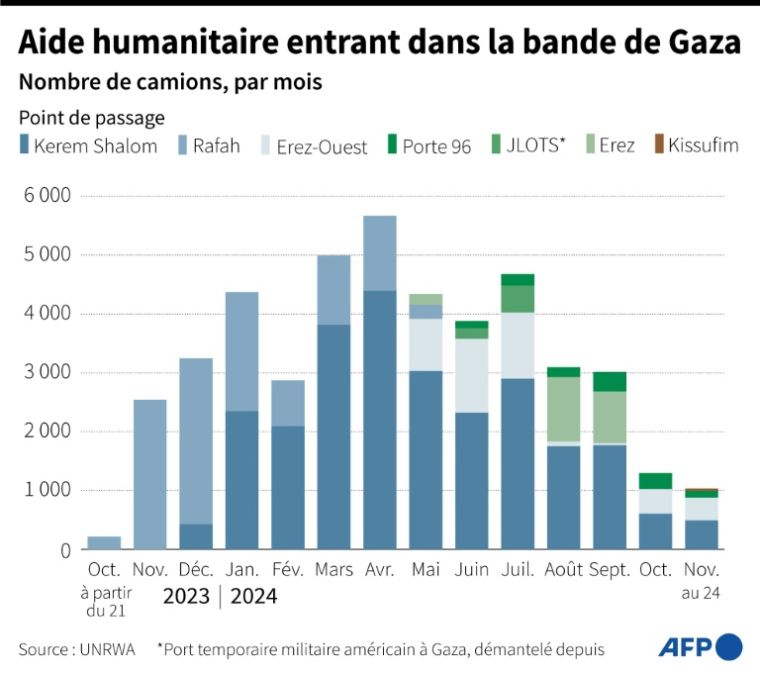
Chart showing the number of humanitarian aid trucks entering the Gaza Strip since October 21, 2023, according to UNRWA data (AFP/Omar KAMAL)
The war was triggered by the unprecedented attack launched by Hamas against Israel on October 7, 2023, which resulted in the death of 1,207 people on the Israeli side, mainly civilians, according to an AFP count based on official data. including hostages killed or died in captivity.
The Israeli offensive carried out in retaliation in Gaza left at least 44,249 dead, the majority civilians, according to data from the Hamas Ministry of Health, deemed reliable by the UN.

